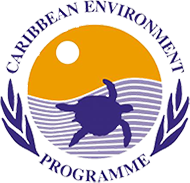- On World Water Day 2021, the GEF CReW+ wants to highlight the multidimensional values of wastewater.
- If you want to learn more about the value of wastewater in the Wider Caribbean Region, join the CReW+ Academy.
“Wastewater is a byproduct of human activity. Like most byproducts, it can have some sort of a second life. [...] we are in need right now of a new revolution that recognizes that wastewater is actually a resource rather than a wasteful byproduct of our daily lives", said Sergio Campos, Water and Sanitation Division Chief at the Inter-American Development Bank (IDB).
However, globally, as much as 70% of domestic wastewater flows into the environment untreated, resulting on the one hand in an untenable waste of resources and, on the other hand, in an uncontrollable threat for public and environmental health. In fact, many disease-causing viruses, parasites, and bacteria also are present in wastewater, contaminating drinking water sources and fish.
Large amounts of biodegradable and inorganic materials are dangerous to receiving waters such as lakes, streams, and oceans – for instance, the once pristine waters of the Caribbean Sea.
Consider that only about 60 percent of the population in Latin American countries is connected to a sewerage system, and only about 30–40 percent of the region’s wastewater that is collected is treated.
What can be done to turn hazardous flows of sewage and non-residential wastewater into a valuable source of nutrients, potable water and/or energy?
The Global Environment Facility (GEF)-funded project CReW+, “Implementing solutions for an integrated water and wastewater management for a clean and healthy Caribbean", co-implemented by the Inter-American Development Bank (IDB) and the United Nations Environment Programme (UNEP), co-executed by the Deutsche Gesellschaft fuer Internationale Zusammenarbeit (GIZ), the Secretariat of the Cartagena Convention and the Organization of American States (OAS) works to do just that – by applying an Integrated Water and Wastewater Management approach.
The GEF CReW+ is executed in 18 countries of the Wider Caribbean Region, which are Barbados, Belize, Colombia, Costa Rica, Cuba, Dominican Republic, Grenada, Guatemala, Guyana, Honduras, Jamaica, Mexico, Panama, St. Kitts and Nevis, St. Lucia, St. Vincent and the Grenadines, Suriname and Trinidad and Tobago. GIZ is executing activities at national level in 11 countries, the Secretariat of the Cartagena Convention in 10 countries and OAS in Barbados.
On World Water Day 2021, the GEF CReW+ wants to highlight the multidimensional values of treating wastewater and managing reuse and disposal safely.
Once treated, it can be used to replace freshwater for irrigation, industrial processes, or recreational purposes. Biosolids can be used to extract nutrients that can be used fertilizers and for energy generation. The GEF CReW+ aims to implement small-scale nature-based solutions such as constructed wetlands, to retrieve precious by-products from its treatment.
If you want to learn more about the value of wastewater in the Wider Caribbean Region, join the CReW+ Academy and dive into the GEF CReW+ world of implementation.






